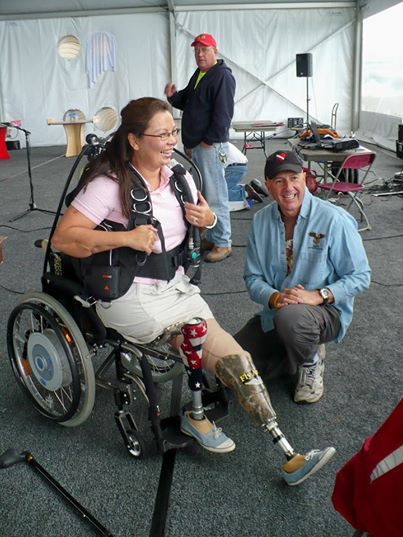
Diveheart
Scuba Therapy Research is becoming very hot, and I believe it is going to revolutionize rehabilitation. Below is a news story that ran in the Washington Post last week about the John Hopkins research on Scuba Therapy and their incredible results. Here are some of our Scuba Therapy news stories and videos. Share them with others in the medical community, with therapists and others, it will blow them away…:)) Please share these with anyone who can help us shine a light on what we do. Any of these stories would be excellent to share on your facebook page. When you pull them up on YOUTUBE just copy the URL into your post on facebook. I think you’ll see results fast.
WGN TV Medical Report on Autism and Scuba Therapy
SCUBA THERAPY: Pain Management tool
Robin Meade: Stories of Courage
TAMMY DUCKWORTH: on Scuba Therapy
TED TALK: Vision for Veterans & others with disabilities
WASHINGTON POST: 80% RELIEF for PTSD through Scuba Therapy… Yesterday’s Excerpts from Article By Anna Medaris Miller… Scientists from Johns Hopkins University are working to prove: that scuba diving has unique therapeutic effects on the minds and bodies of people with spinal-cord-related paralysis.
In a pilot study that included Kaag and eight veterans who were paralyzed while in the military, the Hopkins research team compared physical and psychological measurements collected on the first day of the trip with readings taken after the group became scuba-certified, just five days later.
The results were dramatic: On average, the disabled veterans were 10 percent better at sensing light touch and 5 percent better at feeling pin pricks. Muscle tightness, or spasticity, decreased about 15 percent and motor functioning improved up to 17 percent. Among the five participants with post-traumatic stress disorder, their PTSD symptoms were alleviated by 80 percent, the researchers report. The researchers did not track how long these effects lasted, but the participants’ stories suggest the changes lingered anywhere from minutes to weeks.
“These are people who have had spinal cord injuries for an average of 15 years. There are no treatments for people who have spinal cord injury for 15 years,” says Adam Kaplin, the neuropsychiatrist who led the study with a Hopkins colleague, neurologist Daniel Becker. “The question became ‘Jeez, what the heck is going on?’ And to make a long story short, there were several possibilities.”
The experience is illustrative of a broad scientific challenge: How do you go from a patient’s hunch to a scientist’s proof?

